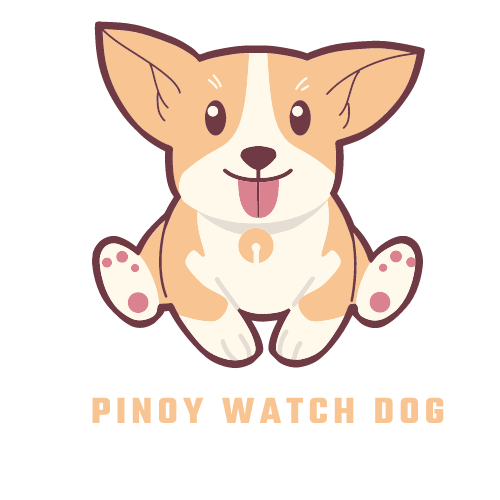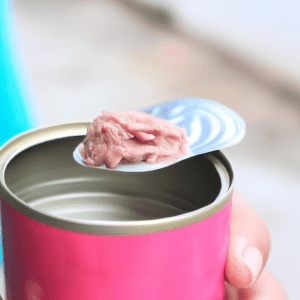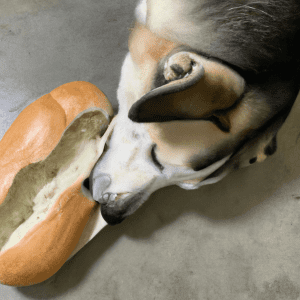Cannellini beans are a popular and nutritious legume that can be found in many dishes. But can dogs eat cannellini beans? In general, it is safe for dogs to eat cannellini beans in moderation. This legume is packed with essential vitamins and minerals that are beneficial to a dog’s health.
However, it’s important to note that there are some safety precautions that should be taken when introducing cannellini beans to a canine diet. In this article, we’ll go over the nutritional benefits of cannellini beans for dogs and provide some tips for feeding them safely.
Is It Safe To Feed Your Dog Cannellini Beans?
Yes, it is safe to feed your dog cannellini beans! Cannellini beans are a type of white bean that is high in protein and fiber, but low in fat. They are also a great source of essential vitamins and minerals, including iron, magnesium, potassium, and vitamin B
- These beans are a great addition to your pup’s diet, as they can help to provide them with a variety of nutrients that can help keep them healthy. Just make sure to cook the beans thoroughly before feeding them to your pup, as raw or undercooked beans can be hard for them to digest. You should also avoid adding any seasonings or condiments to the beans, as these can be a choking hazard for your pup. So, if you’re looking to give your pup a nutritious and delicious snack, cannellini beans are a great option!
What Are The Benefits Of Including Cannellini Beans In Your Dog’s Diet?
Including cannellini beans in your dog’s diet can offer a host of benefits for your pup. First and foremost, beans are an excellent source of protein, providing your pup with a nutrient-dense and easily digestible meal. Cannellini beans are also a great source of complex carbohydrates, providing your dog with essential dietary fiber. This fiber helps to support healthy digestion and can even help to reduce cholesterol.
Additionally, the fiber in cannellini beans can help to regulate your pup’s blood sugar levels, making them a great choice for diabetic dogs. Cannellini beans are also packed with essential vitamins and minerals, such as calcium and iron. These vitamins and minerals are important for your pup’s overall health and can help to support healthy bone growth, muscle maintenance, and brain function.
Including cannellini beans in your pup’s diet can also help to keep them feeling fuller for longer, helping to reduce food cravings and maintain a healthy weight. All in all, including cannellini beans in your pup’s diet is a great way to give them the nutrients they need to stay healthy and happy!
Are There Any Risks Associated With Feeding Your Dog Cannellini Beans?
Yes, there are some risks associated with feeding your dog cannellini beans. The biggest risk is that they can be a choking hazard. Cannellini beans are small and can easily get stuck in your dog’s throat. Also, some dogs are sensitive to beans and may experience gastrointestinal issues such as vomiting or diarrhea.
To make sure this doesn’t happen, it’s best to introduce them to cannellini beans gradually, starting with a small amount, and then gradually increasing the amount over time. You should also make sure to cook them thoroughly and mash them up so they’re easier to digest. Finally, it’s important to monitor your dog for any unusual symptoms and contact your vet if anything seems off.
What Should You Do If Your Dog Accidentally Eats Cannellini Beans?
If your dog accidentally eats cannellini beans, it’s important to act quickly. First, keep an eye on your pet for any signs of distress, such as vomiting, diarrhea, or excessive fatigue. If you notice any of these symptoms, contact your veterinarian right away. In the meantime, make sure your dog has access to plenty of clean, fresh water to help them stay hydrated. You can also help your pup feel better by feeding them a bland diet of boiled chicken and rice, or other easily digestible foods.
It’s also important to monitor your dog’s stool for any signs of abnormalities. If you do notice something unusual, contact your veterinarian for further guidance. Finally, make sure to keep cannellini beans, and any other potential hazards, away from your pet in the future. By taking the appropriate precautions, you can help ensure your pup stays safe and healthy.
How To Prepare Cannellini Beans For Your Dog’s Meal?
Cannellini beans are a great source of protein and fiber and can be a great addition to your pup’s diet. Here’s a quick guide on how to prepare them:
- Start by rinsing the beans. Make sure to remove any dirt or debris.
- Place the beans in a pot and cover them with water.
- Bring the water to a boil, then reduce the heat and let the beans simmer for about 45 minutes or until they are tender.
- Once the beans are cooked, drain them and let them cool.
- You can then mash the beans if you prefer or just serve them as is.
- Add the cooked beans to your pup’s meal and serve! Adding cannellini beans to your pup’s diet is a great way to provide them with additional protein and fiber. Plus, it’s a delicious addition to any meal!
What Other Foods Can Be Combined With Cannellini Beans To Create A Balanced Diet For Your Dog?
If you’re looking to create a balanced diet for your pup, combining cannellini beans with other foods is a great way to ensure they get all the nutrition they need. Here are some ideas for combining cannellini beans with other foods to create a nutritious and balanced meal:
Add lean proteins like cooked chicken, fish, or turkey for a healthy dose of amino acids and omega-3 fatty acids. -Include a variety of veggies like carrots, broccoli, spinach, and green beans for vitamins, minerals, and fiber. Add healthy fats like coconut oil and olive oil for a boost of energy and essential fatty acids.
Toss in some whole grains like brown rice, quinoa, and oats for a hearty dose of complex carbohydrates. Top the meal off with some fresh fruit like apples, bananas, or blueberries for a sweet and nutritious treat. By combining cannellini beans with other nutritious foods, you can give your pup a well-rounded and balanced meal that will keep them healthy and happy.
Are There Any Special Considerations When Feeding Cannellini Beans To Senior Dogs?
When it comes to feeding cannellini beans to senior dogs, there are a few special considerations to keep in mind. First, these beans can be difficult for some dogs to digest, so it’s important to introduce them slowly and in small amounts. Start with a quarter cup of cooked beans and monitor your senior dog for any signs of stomach upset. Additionally, make sure to cook the beans thoroughly to make them easier for your dog to digest.
This means boiling them for at least 10 minutes before serving. Second, if your senior dog is prone to kidney or bladder issues, you should avoid feeding them cannellini beans. The high levels of phosphorus and sodium can be hard on their kidneys, so it’s best to avoid them altogether. Finally, it’s important to watch your senior dog’s weight when feeding cannellini beans. These beans are high in fiber, which can help keep your dog feeling full longer, but they’re also high in calories.
Too many cannellini beans can lead to weight gain, so be sure to adjust portion sizes accordingly. Overall, feeding cannellini beans to senior dogs can be a healthy and nutritious treat, but it’s important to keep the above considerations in mind to ensure they’re getting the best nutrition possible.
What Are The Nutritional Benefits Of Cannellini Beans For Dogs?
Cannellini beans are a great addition to your pup’s diet! These small white beans are packed with nutrition, including protein, fiber, vitamins, and minerals that are essential for your pup’s health. Protein – Cannellini beans contain a good amount of protein, which is essential for the growth and maintenance of your pup’s body.
It can help build and repair muscle, skin, and fur. Fiber – Fiber is important for your pup’s digestive system. It keeps them regular and helps them absorb nutrients more efficiently. Cannellini beans are a great source of fiber and can help keep your pup’s digestive system healthy. Vitamins – Cannellini beans are full of vitamins, including vitamins A, B, and C. Vitamin A helps keep your pup’s vision sharp and skin healthy.
Vitamin B helps the body make new cells and Vitamin C helps support a strong immune system. Minerals – Cannellini beans are also a great source of minerals, including calcium, iron, and magnesium. Calcium is important for strong bones and teeth, iron helps the body make red blood cells, and magnesium helps with muscle and nerve function. Overall, cannellini beans are a great source of nutrition for your pup. They’re packed with protein, fiber, vitamins, and minerals that are essential for their health. So, consider adding them to your pup’s diet for a nutritional boost!
Are Cannellini Beans Safe For All Breeds Of Dogs?
Yes, cannellini beans are safe for all breeds of dogs. They are a great source of protein and fiber and contain lots of vitamins and minerals. Plus, they are low in fat and can be a great addition to your pup’s diet. Just make sure to cook them thoroughly before feeding them to your pup. Cannellini beans can be served mashed, pureed, or whole. However, it’s important to consult your veterinarian before adding any new food to your pup’s diet.
How To Tell If Your Dog Is Allergic To Cannellini Beans?
If your dog is showing any of the following symptoms after eating cannellini beans, they may be allergic to them:
- Itchy skin
- Hives
- Red, inflamed eyes
- Sneezing
- Vomiting
- Diarrhea
- Scratching
- Coughing
- Wheezing If you notice any of these symptoms, take your dog to the vet for a proper diagnosis. They can help determine if your pup is indeed allergic to cannellini beans and provide advice on how to best manage the allergy.
In conclusion, it is not recommended to feed your dog cannellini beans. Cannellini beans can cause gastrointestinal distress in dogs, including nausea, vomiting, and diarrhea. While they may be a good source of protein, they may also contain compounds that are toxic to dogs. Therefore, it is best to find alternative sources of protein for your dog.




